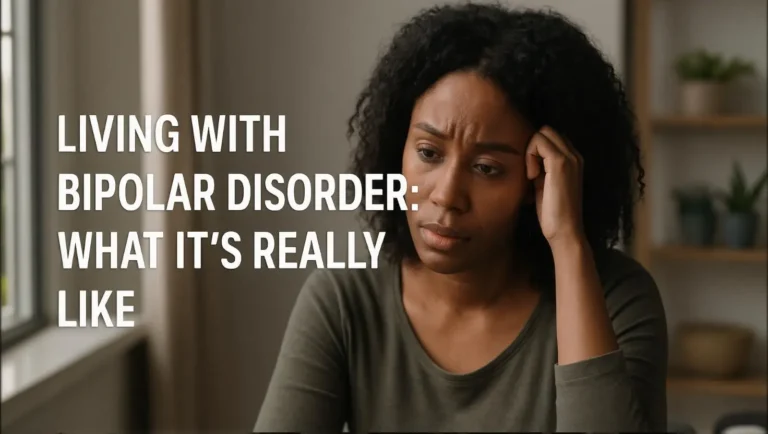Living with Bipolar Disorder: What It’s Really Like
Insight and Support from GloFusion in Griffin, GA
Bipolar disorder is often misunderstood—reduced to stereotypes of dramatic mood swings or erratic behavior. But for those living with the condition, it’s far more complex. Bipolar disorder affects how a person experiences energy, emotion, motivation, and even relationships.
At GloFusion in Griffin, GA, we offer a compassionate, stigma-free environment where individuals with bipolar disorder can find the support and strategies they need to live full, meaningful lives. Here’s what living with bipolar disorder really looks like, from the inside out.

Page Contents
Bipolar Disorder Is More Than Mood Swings
While mood shifts are a hallmark of bipolar disorder, they’re not the whole story. People with bipolar disorder experience periods of elevated mood (mania or hypomania) and depression, but the condition also affects sleep, cognition, and day-to-day functioning.
What bipolar disorder really includes:
🔺 Mania or hypomania – High energy, impulsive decisions, racing thoughts
🔻 Depressive episodes – Low motivation, hopelessness, withdrawal
🌓 Mixed episodes – Simultaneous symptoms of mania and depression
🧠 Cognitive impacts – Trouble focusing, memory lapses, slowed thinking
⏰ Changes in sleep – Insomnia during mania, hypersomnia during depression (National Institute of Mental Health)
Living with bipolar disorder requires ongoing self-awareness, emotional regulation, and often, medical support.
The Day-to-Day Reality of Managing Bipolar Symptoms
Many people with bipolar disorder work, go to school, and maintain relationships—but it can take extra effort, structure, and support to keep symptoms in check.
Common day-to-day experiences include:
📝 Mood tracking – Keeping a journal or using apps to monitor mood changes
💊 Medication management – Following a strict routine and staying in touch with a provider
📅 Maintaining structure – Consistent sleep, meals, and activity routines
🎯 Energy shifts – Navigating periods of intense productivity followed by fatigue
🧍 Social stress – Explaining mood changes or setting boundaries during episodes
At GloFusion, we help individuals develop daily routines and treatment plans that support stability and independence.
How Bipolar Disorder Affects Relationships and Self-Esteem
The emotional highs and lows of bipolar disorder can make relationships feel unpredictable. During manic episodes, a person may feel overconfident or impulsive, while during depression, they may withdraw or feel unworthy of connection.
Emotional and relational challenges may include:
💬 Misunderstandings with family or coworkers
😞 Guilt or shame after manic episodes
🤝 Fear of being a burden or being misunderstood
📉 Impact on self-worth and self-image
💡 Hesitation to ask for help—even when it’s needed
We work with clients at GloFusion to rebuild confidence and provide strategies for managing communication and self-perception in relationships.

Why Support Makes All the Difference
Living with bipolar disorder doesn’t mean living without hope. With the right combination of psychiatric care, therapy, community support, and lifestyle strategies, many people thrive with the condition.
What effective support includes:
🧠 Psychiatric treatment – Including mood stabilizers and ongoing evaluation
🗣 Therapy – Such as CBT or interpersonal therapy to improve coping skills
📚 Education – Understanding one’s diagnosis to feel empowered, not defined
🧍♂️ Peer support groups – Connecting with others who “get it”
🌱 Healthy habits – Sleep hygiene, mindfulness, nutrition, and movement
At GloFusion, we believe that understanding leads to healing—and we’re here to support each step of your journey.
Conclusion: You’re More Than a Diagnosis
Living with bipolar disorder doesn’t mean you’re broken. It means your brain works differently—and with the right support, that difference doesn’t have to stand in the way of a meaningful, fulfilling life.
👉 Want expert support for bipolar disorder? Contact GloFusion in Griffin, GA to start your mental health journey.

